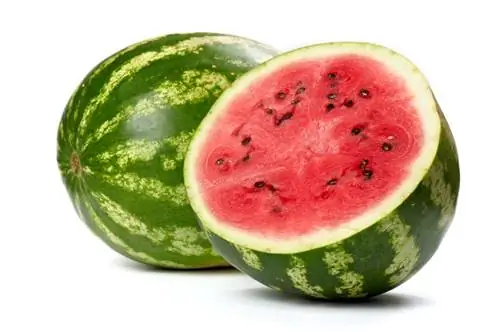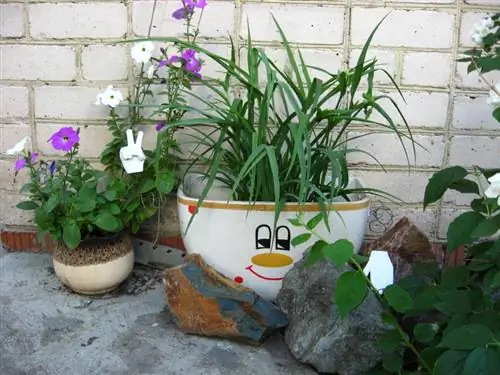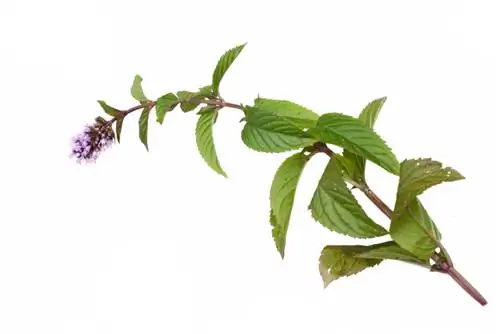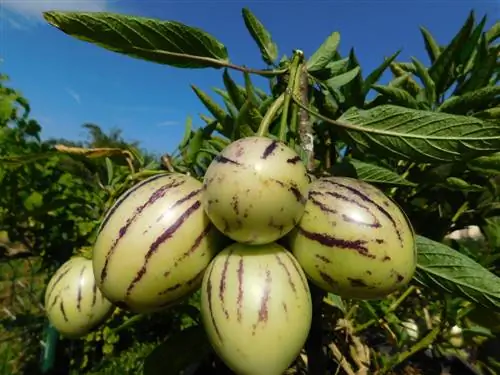- Author admin leonars@hobbygardeners.com.
- Public 2023-12-16 16:46.
- Last modified 2025-01-23 11:20.
When fully ripe, the flesh of watermelon tastes slightly sweet and pleasantly refreshing. However, the fruits are not always harvested sufficiently ripe in the countries of origin.
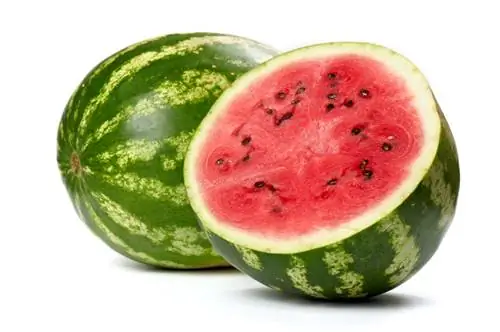
How do I know if a watermelon is ripe?
You can recognize a ripe watermelon by its dull green color with reticulated yellow parts, a yellow spot on one side and a dull, bright sound when tapped. Heavier specimens are often more mature compared to their size.
Identify fruit ripeness by color
Before watermelons end up on the fruit shelf of local supermarkets, they are usually transported here over long distances from the following countries:
- Spain
- Iran
- Türkiye
- Israel
Since a few days or weeks can pass during transport, fruits that are not yet fully ripe are sometimes harvested. A shiny green color indicates immaturity in watermelons, while a dull green with reticulated yellow components indicates advanced ripeness. A yellow spot on one side of the watermelon indicates whether the melon was harvested sufficiently ripe. This is by no means a quality defect, but rather forms where the watermelon rests on the ground when it is completely ripe.
The sonic knock test on watermelons
Experts in the field of watermelon cultivation When tapping a watermelon, they pay attention not only to the sound, but also to the exact echo of the impact vibrations. Basically, the relative weight compared to the size of the watermelon also indicates the degree of ripeness. If one of the watermelons of the same size seems heavier than the others, it is the ripest one. Tap your hand against the rind of the watermelon and listen for the exact sound. If it appears dull and bright, it is probably a ripe fruit. A very dark and full sound, on the other hand, indicates a lack of maturity.
Determining the ripeness of watermelons in your own garden
If the watermelons grew directly in your garden or in the greenhouse, you can use additional indicators to determine the level of ripeness. As the fruits begin to fully ripen, the stem ends of the fruits develop slight cracks. In addition, wilting leaves in the absence of frost or drought are a sign that watermelons are ready for harvest.
Tips & Tricks
When you buy watermelons in the supermarket, you should buy the symmetrically shaped and uniform fruits. Dents in the otherwise regular shape indicate a temporary undersupply of water or nutrients to the plants.

